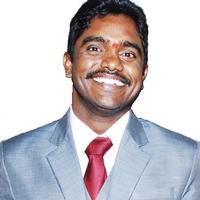Papers by Scott Burgess, Ph.D.
Conference Presentations by Scott Burgess, Ph.D.
Presentation at the 2015 Flight School Operators Conference hosted by the Flight School Associati... more Presentation at the 2015 Flight School Operators Conference hosted by the Flight School Association of North America 2015.
How can Flight Schools extend the learning of their clients to enhance the industry in quality and safety but using technology in the academic component of the curriculum.

Aircraft accident investigation requires extensive theoretical and methodological knowledge as we... more Aircraft accident investigation requires extensive theoretical and methodological knowledge as well as hands-on application. While there are a handful of training centers that offer crash site reconstructions as training aids, these facilities offer limited static tools that can only be accessed by a minimal number of trainees who have flexible work schedules and access to available budgetary resources for travel, lodging and tuition to attend what is generally not-for-credit hands-on training.
The use of a virtual interactive aircraft crash training environment can deliver a virtual crash laboratory to an infinite number of trainees, worldwide, provided computer technology is present. The virtual hands-on experience allows students to apply complex theories and investigative methodologies in a secure, interactive, portable learning environment. Training can be modularized to specific airframe and crash scenarios, and can be geared toward initial, recurring, or advanced training and assessment needs.
This research demonstrates the application, current capabilities, and future potential of the ERAU Aircraft Accident Investigation in a Virtual Lab environment (VLE) and addresses issues and challenges associated with adapting this technology in academia and industry. Issues to be addressed relate to current training/educational challenges for aircraft accident investigation, quality in context, student satisfaction, integration into curriculum, and assessment protocols.
Aeronautical Knowledge vs. What Pilots Should Know: Part 2, Problem Solving
Tuesday, February 2... more Aeronautical Knowledge vs. What Pilots Should Know: Part 2, Problem Solving
Tuesday, February 25 || 2:30 pm to 3:30 pm
Anaheim Convention Center
Instructor: Scott Burgess, assistant professor, Embry-Riddle Aeronautical University – Worldwide
Professional Development Credit: FAA Wings program credit
Continuing the discussion from Part 1 on aeronautical knowledge and accident research, this part delves into discovering the source of the accident problem and strategies to solve it. How can owner/operators, certificated flight instructors, chief operating officers, and small-company owners change the game using accident data as a catalyst?
After the session, attendees will understand —
Their role in preventing accidents
Strategies to help solve problems in preventing accidents.
FRIDAY, JANUARY 17, 2014
Integration of Aeronautical Knowledge and Safety Management into Flig... more FRIDAY, JANUARY 17, 2014
Integration of Aeronautical Knowledge and Safety Management into Flight Operations
Location
Mojave East
Start Date
17-1-2014 3:15 PM
Abstract
• Current trends in rotorcraft accident rates worldwide do not appear to be subsiding
• Many factors contribute to this situation
• Most important are statistics that point to the human factor
Scholarly Commons Citation
Scott Burgess, "Integration of Aeronautical Knowledge and Safety Management into Flight Operations" (January 17, 2014). Aviation / Aeronautics / Aerospace International Research Conference. Paper 39.
http://commons.erau.edu/aircon/2014_Challenges_Facing_our_Industry/january-17-2014/39

Aeronautical Knowledge vs. What Pilots Should Know: Part 1, Accident Prevention
Tuesday, Febru... more Aeronautical Knowledge vs. What Pilots Should Know: Part 1, Accident Prevention
Tuesday, February 25 || 1:00 pm to 2:00 pm
Anaheim Convention Center
Instructor: Scott Burgess, assistant professor, Embry-Riddle Aeronautical University – Worldwide
Professional Development Credit: FAA Wings program credit
This session, which was highly attended at HAI HELI-EXPO 2013, offers an in-depth look at aeronautical knowledge, decision making, and understanding of limitations. This presentation is a combination of applying practical knowledge beyond the Helicopter Flying Handbook and the research of the International Helicopter Safety Team Analysis Team, with a focus on accident prevention. Ideal for all experience levels, this presentation evolved from extensive research for The Reality of Aeronautical Knowledge: The Analysis of Accident Reports Against What Aircrews are Supposed to Know.
Attendees will —
Gain a higher level of operational and safety awareness as related to their functions within a company
Study actual accident reports as they relate to specific points of aeronautical knowledge in order to develop an acute awareness of pilots in their environment.
Scott Burgess has 25 years of civil and military experience as an instructor pilot, flight operations manager, maintenance manager, commander, auditor, and consultant. His university experience includes industry-related research, curriculum development, instruction, and authorship. Burgess developed the Embry-Riddle helicopter program and now serves as the chair for the aeronautics program. He serves on two committees on the U.S. Helicopter Safety Team.

Aeronautical Knowledge vs. What Pilots Should Know
Wednesday, March 6 | | 10:00 am to 11:00 am... more Aeronautical Knowledge vs. What Pilots Should Know
Wednesday, March 6 | | 10:00 am to 11:00 am
Las Vegas Convention Center, North Hall, Room N255
Flight Operations Track
This presentation is a combination of practical knowledge beyond the Helicopter Flying Handbook and the research of the International Helicopter Safety Team (IHST) Analysis Team. This in-depth look at aeronautical knowledge, decision making, and understanding of limitations is ideal for all experience levels. This presentation evolved from extensive research for the industry publication, The Reality of Aeronautical Knowledge: The Analysis of Accident Reports Against What Aircrews Are Supposed to Know, by the session instructor, Scott Burgess.
Learning Objectives/Benefits
Attendees will gain a higher level of operational and safety awareness related to their functions within a company. Actual accident reports are studied in-depth as they relate to specific points of aeronautical knowledge in order to develop an acute awareness of pilots in their environment. This course is an exceptional personal safety supplement.










Uploads
Papers by Scott Burgess, Ph.D.
Conference Presentations by Scott Burgess, Ph.D.
How can Flight Schools extend the learning of their clients to enhance the industry in quality and safety but using technology in the academic component of the curriculum.
The use of a virtual interactive aircraft crash training environment can deliver a virtual crash laboratory to an infinite number of trainees, worldwide, provided computer technology is present. The virtual hands-on experience allows students to apply complex theories and investigative methodologies in a secure, interactive, portable learning environment. Training can be modularized to specific airframe and crash scenarios, and can be geared toward initial, recurring, or advanced training and assessment needs.
This research demonstrates the application, current capabilities, and future potential of the ERAU Aircraft Accident Investigation in a Virtual Lab environment (VLE) and addresses issues and challenges associated with adapting this technology in academia and industry. Issues to be addressed relate to current training/educational challenges for aircraft accident investigation, quality in context, student satisfaction, integration into curriculum, and assessment protocols.
Tuesday, February 25 || 2:30 pm to 3:30 pm
Anaheim Convention Center
Instructor: Scott Burgess, assistant professor, Embry-Riddle Aeronautical University – Worldwide
Professional Development Credit: FAA Wings program credit
Continuing the discussion from Part 1 on aeronautical knowledge and accident research, this part delves into discovering the source of the accident problem and strategies to solve it. How can owner/operators, certificated flight instructors, chief operating officers, and small-company owners change the game using accident data as a catalyst?
After the session, attendees will understand —
Their role in preventing accidents
Strategies to help solve problems in preventing accidents.
Integration of Aeronautical Knowledge and Safety Management into Flight Operations
Location
Mojave East
Start Date
17-1-2014 3:15 PM
Abstract
• Current trends in rotorcraft accident rates worldwide do not appear to be subsiding
• Many factors contribute to this situation
• Most important are statistics that point to the human factor
Scholarly Commons Citation
Scott Burgess, "Integration of Aeronautical Knowledge and Safety Management into Flight Operations" (January 17, 2014). Aviation / Aeronautics / Aerospace International Research Conference. Paper 39.
http://commons.erau.edu/aircon/2014_Challenges_Facing_our_Industry/january-17-2014/39
Tuesday, February 25 || 1:00 pm to 2:00 pm
Anaheim Convention Center
Instructor: Scott Burgess, assistant professor, Embry-Riddle Aeronautical University – Worldwide
Professional Development Credit: FAA Wings program credit
This session, which was highly attended at HAI HELI-EXPO 2013, offers an in-depth look at aeronautical knowledge, decision making, and understanding of limitations. This presentation is a combination of applying practical knowledge beyond the Helicopter Flying Handbook and the research of the International Helicopter Safety Team Analysis Team, with a focus on accident prevention. Ideal for all experience levels, this presentation evolved from extensive research for The Reality of Aeronautical Knowledge: The Analysis of Accident Reports Against What Aircrews are Supposed to Know.
Attendees will —
Gain a higher level of operational and safety awareness as related to their functions within a company
Study actual accident reports as they relate to specific points of aeronautical knowledge in order to develop an acute awareness of pilots in their environment.
Scott Burgess has 25 years of civil and military experience as an instructor pilot, flight operations manager, maintenance manager, commander, auditor, and consultant. His university experience includes industry-related research, curriculum development, instruction, and authorship. Burgess developed the Embry-Riddle helicopter program and now serves as the chair for the aeronautics program. He serves on two committees on the U.S. Helicopter Safety Team.
Wednesday, March 6 | | 10:00 am to 11:00 am
Las Vegas Convention Center, North Hall, Room N255
Flight Operations Track
This presentation is a combination of practical knowledge beyond the Helicopter Flying Handbook and the research of the International Helicopter Safety Team (IHST) Analysis Team. This in-depth look at aeronautical knowledge, decision making, and understanding of limitations is ideal for all experience levels. This presentation evolved from extensive research for the industry publication, The Reality of Aeronautical Knowledge: The Analysis of Accident Reports Against What Aircrews Are Supposed to Know, by the session instructor, Scott Burgess.
Learning Objectives/Benefits
Attendees will gain a higher level of operational and safety awareness related to their functions within a company. Actual accident reports are studied in-depth as they relate to specific points of aeronautical knowledge in order to develop an acute awareness of pilots in their environment. This course is an exceptional personal safety supplement.
How can Flight Schools extend the learning of their clients to enhance the industry in quality and safety but using technology in the academic component of the curriculum.
The use of a virtual interactive aircraft crash training environment can deliver a virtual crash laboratory to an infinite number of trainees, worldwide, provided computer technology is present. The virtual hands-on experience allows students to apply complex theories and investigative methodologies in a secure, interactive, portable learning environment. Training can be modularized to specific airframe and crash scenarios, and can be geared toward initial, recurring, or advanced training and assessment needs.
This research demonstrates the application, current capabilities, and future potential of the ERAU Aircraft Accident Investigation in a Virtual Lab environment (VLE) and addresses issues and challenges associated with adapting this technology in academia and industry. Issues to be addressed relate to current training/educational challenges for aircraft accident investigation, quality in context, student satisfaction, integration into curriculum, and assessment protocols.
Tuesday, February 25 || 2:30 pm to 3:30 pm
Anaheim Convention Center
Instructor: Scott Burgess, assistant professor, Embry-Riddle Aeronautical University – Worldwide
Professional Development Credit: FAA Wings program credit
Continuing the discussion from Part 1 on aeronautical knowledge and accident research, this part delves into discovering the source of the accident problem and strategies to solve it. How can owner/operators, certificated flight instructors, chief operating officers, and small-company owners change the game using accident data as a catalyst?
After the session, attendees will understand —
Their role in preventing accidents
Strategies to help solve problems in preventing accidents.
Integration of Aeronautical Knowledge and Safety Management into Flight Operations
Location
Mojave East
Start Date
17-1-2014 3:15 PM
Abstract
• Current trends in rotorcraft accident rates worldwide do not appear to be subsiding
• Many factors contribute to this situation
• Most important are statistics that point to the human factor
Scholarly Commons Citation
Scott Burgess, "Integration of Aeronautical Knowledge and Safety Management into Flight Operations" (January 17, 2014). Aviation / Aeronautics / Aerospace International Research Conference. Paper 39.
http://commons.erau.edu/aircon/2014_Challenges_Facing_our_Industry/january-17-2014/39
Tuesday, February 25 || 1:00 pm to 2:00 pm
Anaheim Convention Center
Instructor: Scott Burgess, assistant professor, Embry-Riddle Aeronautical University – Worldwide
Professional Development Credit: FAA Wings program credit
This session, which was highly attended at HAI HELI-EXPO 2013, offers an in-depth look at aeronautical knowledge, decision making, and understanding of limitations. This presentation is a combination of applying practical knowledge beyond the Helicopter Flying Handbook and the research of the International Helicopter Safety Team Analysis Team, with a focus on accident prevention. Ideal for all experience levels, this presentation evolved from extensive research for The Reality of Aeronautical Knowledge: The Analysis of Accident Reports Against What Aircrews are Supposed to Know.
Attendees will —
Gain a higher level of operational and safety awareness as related to their functions within a company
Study actual accident reports as they relate to specific points of aeronautical knowledge in order to develop an acute awareness of pilots in their environment.
Scott Burgess has 25 years of civil and military experience as an instructor pilot, flight operations manager, maintenance manager, commander, auditor, and consultant. His university experience includes industry-related research, curriculum development, instruction, and authorship. Burgess developed the Embry-Riddle helicopter program and now serves as the chair for the aeronautics program. He serves on two committees on the U.S. Helicopter Safety Team.
Wednesday, March 6 | | 10:00 am to 11:00 am
Las Vegas Convention Center, North Hall, Room N255
Flight Operations Track
This presentation is a combination of practical knowledge beyond the Helicopter Flying Handbook and the research of the International Helicopter Safety Team (IHST) Analysis Team. This in-depth look at aeronautical knowledge, decision making, and understanding of limitations is ideal for all experience levels. This presentation evolved from extensive research for the industry publication, The Reality of Aeronautical Knowledge: The Analysis of Accident Reports Against What Aircrews Are Supposed to Know, by the session instructor, Scott Burgess.
Learning Objectives/Benefits
Attendees will gain a higher level of operational and safety awareness related to their functions within a company. Actual accident reports are studied in-depth as they relate to specific points of aeronautical knowledge in order to develop an acute awareness of pilots in their environment. This course is an exceptional personal safety supplement.